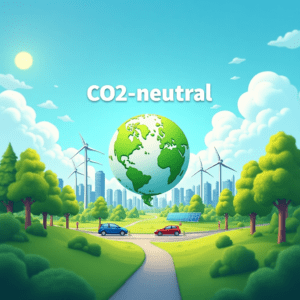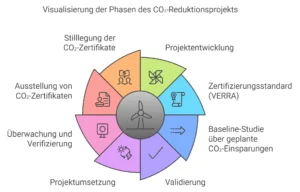Sustainability describes the principle of using resources in a way that meets the needs of the present generation without compromising the ability of future generations to meet their own needs. It is a central approach in environmental and climate policy that ensures ecological, social, and economic systems remain stable and resilient in the long term. Sustainability affects various areas of life, including energy supply, agriculture, consumption behavior, and urban development.
The Three Pillars of Sustainability
Sustainability is often represented by the three-pillar model, which highlights the interactions between ecological, social, and economic aspects:
1. Ecological Sustainability:
This focuses on preserving nature and its resources. It includes protecting biodiversity, maintaining natural habitats, and reducing environmental pollution. The goal is to manage ecological resources such as water, air, and soil in a way that they can regenerate and remain available to future generations.
2. Social Sustainability:
Social sustainability aims to promote a fair society in which all people have access to education, health, employment, and a safe living environment. It emphasizes the importance of social justice, societal participation, and the promotion of communities that strengthen social cohesion.
3. Economic Sustainability:
This pillar refers to shaping economic activities in the long term to foster a stable and resilient economy. It includes using resources efficiently, creating jobs, and promoting economic growth that aligns with ecological and social goals.
Sustainability in Daily Life
Sustainability is increasingly important in many areas of daily life. Examples include:
– Energy:
Switching to renewable energy sources such as solar, wind, or hydropower to conserve fossil resources and reduce emissions.
– Mobility:
Promoting public transportation, bicycles, or electric cars to reduce CO₂ emissions.
– Food:
Buying locally and seasonally, as well as choosing organically produced foods to minimize transportation distances and support sustainable farming practices.
– Consumption:
Buying durable products, reducing waste, and recycling to conserve the environment and save resources.
Sustainability on a Global Level
At the international level, the United Nations’ 2030 Agenda has established 17 Sustainable Development Goals (SDGs), which include protecting the environment, eliminating poverty, and promoting peace. These goals aim to motivate the global community to promote sustainable development in all areas and take concrete actions.
Sustainability is thus a comprehensive concept that requires long-term thinking, responsibility, and the willingness to change. It is not only a challenge but also offers the opportunity to create a healthy, just, and livable future for all.
For more information, visit the Wikipedia page on Sustainability.



